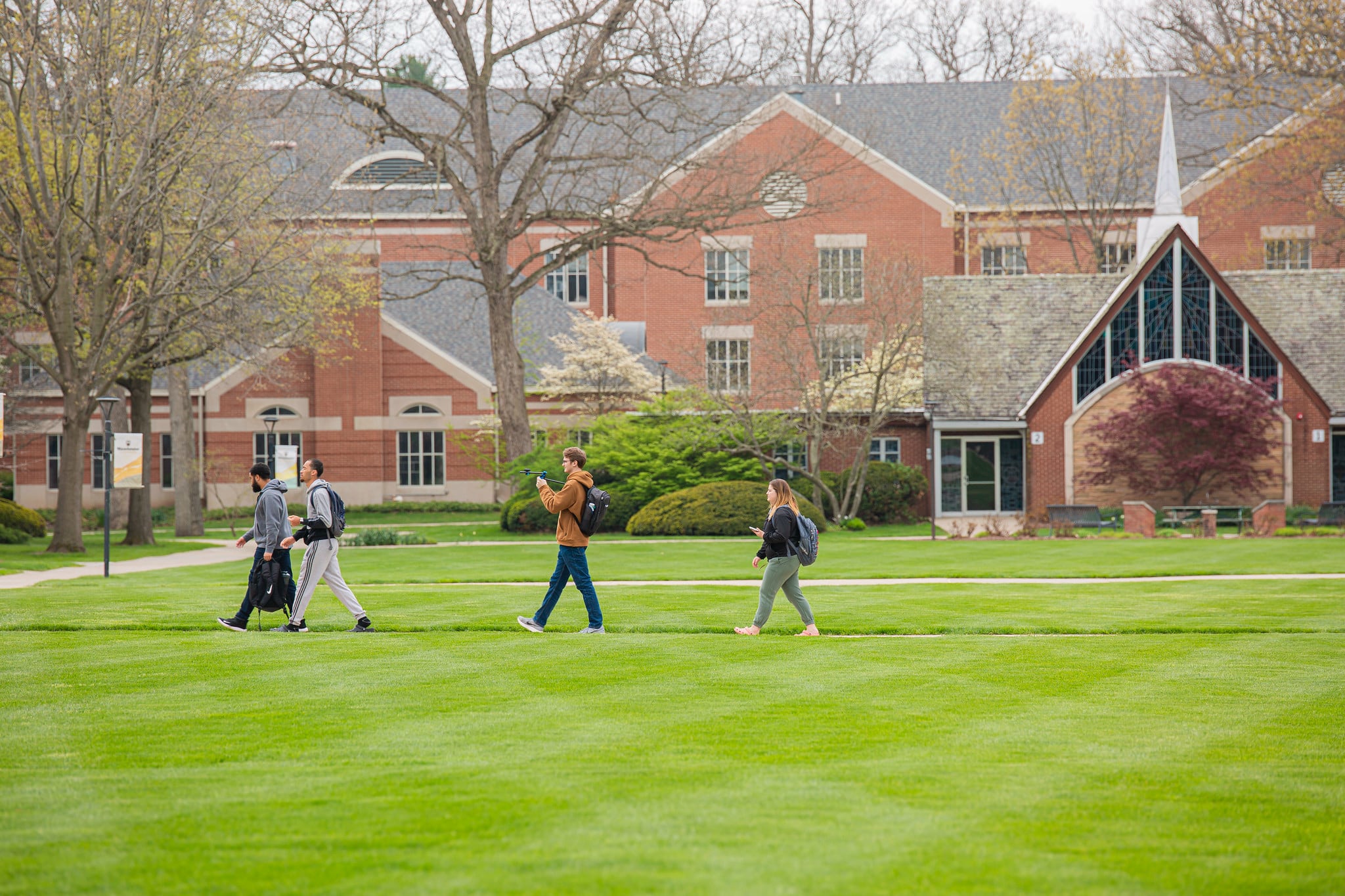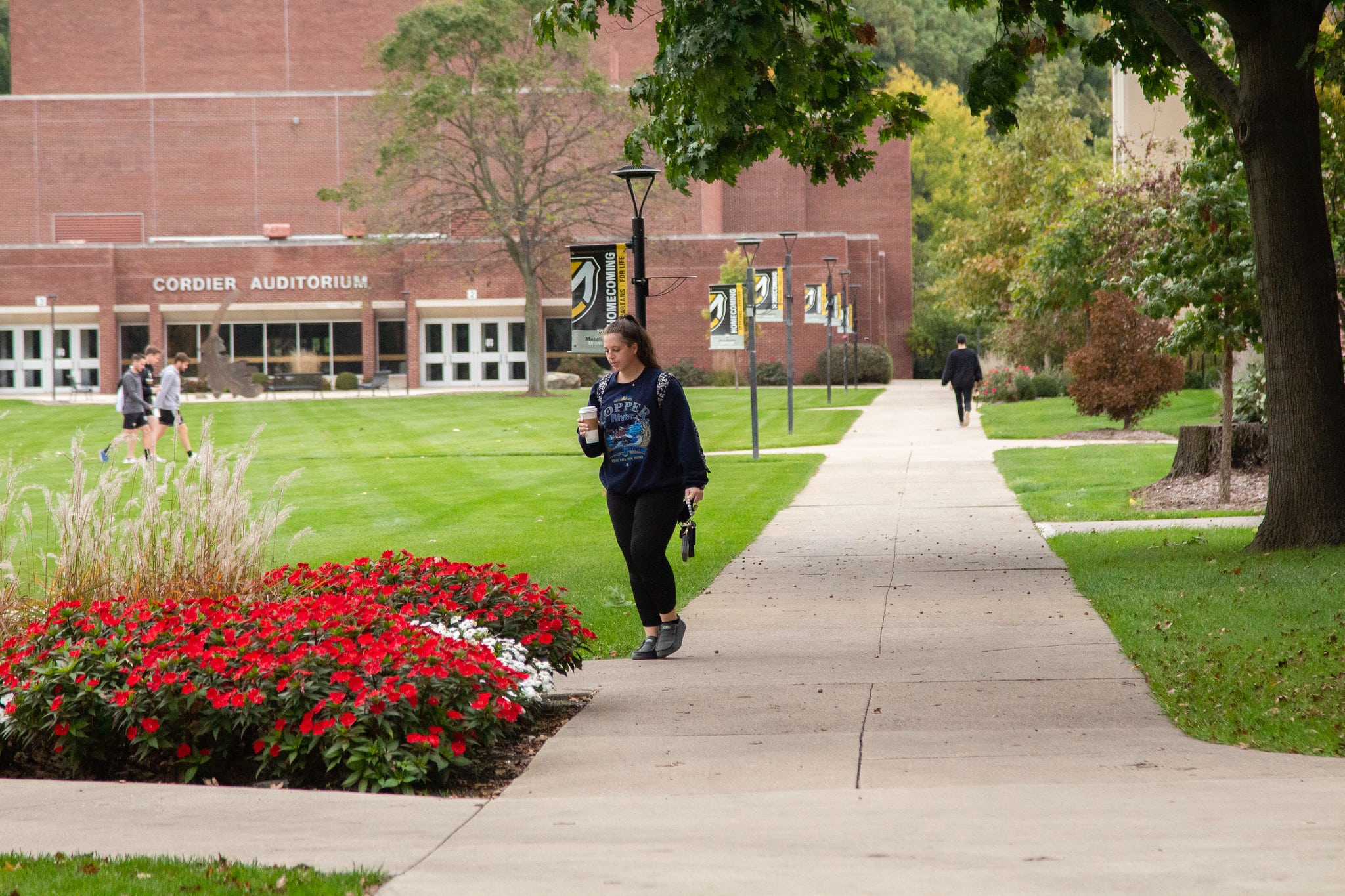Counseling
Manchester University’s interdisciplinary major in counseling meets the latest employer demands for cross-cultural competency, international business and psychological practices that treat the whole person. Strong candidates for this major include students who flourish in personal interactions, are committed to human healing, are interested in using psychology in business negotiation and marketing, and drawn to the intersection between faith, spirituality and psychological health.

Finding the Right Fit with a Counseling Degree
This major is designed to equip students with knowledge of the world’s major religious traditions and practices so that they can attend to all the dimensions of the human experience. Students are enabled to utilize innovative approaches for the alleviation of personal distress. This major will also equip students with skills that are meaningful for their lives, including those relevant to marriage and family harmony, organizational thinking, and healthy social interaction.
Program Information:
Major | BS
- 56-58 Credit Hours
Minor | Psychology
- 19 Credit Hours
Minor | Religious Studies
- 21 Credit Hours
Location
- North Manchester
Why Choose MU for Counseling?

A Heritage of Compassion and Belief
A Unique Blend of Psychology and Religion
Liberal Arts that Strengthen Counseling Foundations
What You Can Do with Your Counseling Degree
Clinical Psychologist
Diagnoses and treats mental health disorders through therapy and assessment.
Pastoral Counselor
Provides faith-based counseling integrating spiritual and psychological support.
Licensed Mental Health Counselor
Offers therapeutic services for anxiety, depression, and emotional distress.
Sports Psychologist
Enhances athletic performance through mental training and psychological strategies.

Average Starting Salary for Counseling Degree Holders
Manchester University counseling graduates typically begin their careers with median salaries ranging from $59K (for mental‑health counselors) to $65K (for school/career counselors), based on U.S. Bureau of Labor Statistics data.

How the Counseling Program Supports Your Growth
Our liberal arts curriculum instills superior critical thinking skills, writing aptitude, quantitative reasoning proficiency, and an appreciation for cultural differences, all skills highly valued by graduate schools and employers.
Our curriculum is well-rounded to introduce you to all major fields of psychology and knowledge of the world’s major religious traditions and practices.
Students majoring in counseling will:
- develop a deeper understanding of their own cultural and spiritual identities, as well as the social forces that contribute to conflicting business perspectives, political orientations and family trauma
- learn how to employ contemporary evidence-based practices to meet these conflicting forces
- command groundbreaking psychological and contemplative approaches that have a profound impact on the relief of human suffering
Meet the Faculty
You Might Also Be Interested In These Programs

Counseling Learning Outcomes
Program Learning Outcomes
Student Learning Outcomes:
- Apply psychological content to solve practical problems.
- Evaluate key concepts, principles, and theories in psychological science for a deeper understanding of behavior.
2. Students will investigate psychological phenomena with the principles of scientific reasoning.
Student Learning Outcomes:
- Interpret, design, and evaluate psychological research.
- Present psychological research and ideas in multiple formats and to different audiences.
3. Recognize and appreciate religious diversity.
Student Learning Outcomes:
- Identify and compare the beliefs, practices, and key figures of major world religions, recognizing the diversity within each tradition.
- Defend the ethical value of religious diversity, including issues related to tolerance, pluralism, religious freedom, and human rights.
- Integrate psychological and religious perspectives to develop an understanding of the ways individuals find meaning in their lives.
Non-Discrimination in the Admission Process
Manchester University is committed to non-discrimination in campus life. The University does not discriminate on the basis of national origin, ancestry, race, color, age, sex, gender identity or expression, sexual orientation, familial status, religion, disability or veteran status in admissions or any area of campus life, including its educational programs, scholarships and loan awards, residence life programs, athletic programs, extracurricular programs, promotion and tenure policies and practice, and alumni affairs.
Manchester University is committed to carry out the provisions of Section 504 of the Rehabilitation Act of 1973 and the Americans With Disabilities Act, which provide for accessibility of University programs to the physically disabled.








